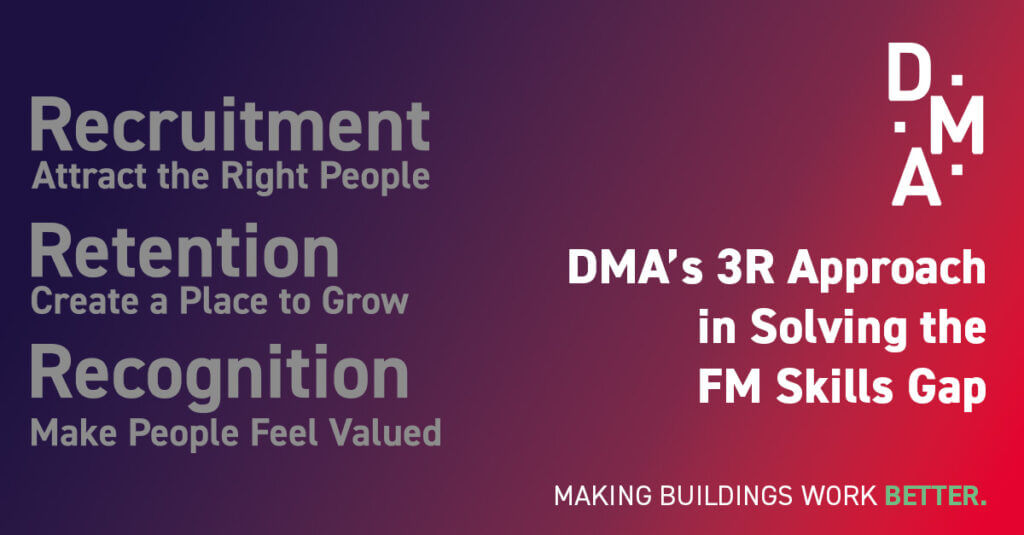The Constraint Advantage: How Limited Resources Force Better Ideas
Introduction
While household names like Apple and Amazon revolutionized their industries through innovation, today's small and medium enterprises are proving that transformative breakthroughs aren't reserved for tech giants. Recent data shows that innovation-active small businesses create 69% more revenue than their non-innovative counterparts—adding an average of $405,041 to their annual bottom line. Here are two powerful examples of SMEs that leveraged strategic innovation to achieve remarkable results.
Case Study 1: DMA Group—Revolutionizing Facilities Management Through Digital Transformation
 The Situation
The Situation
DMA Group, a 200-year-old UK-based property services specialist, faced challenges endemic to the building maintenance industry: outdated service practices, low profitability, lack of differentiation, and inefficient manual processes. Engineers relied on intuition and guesswork, customers had to contact the office to schedule visits, and the company's administrative burden consumed thousands of hours annually. With persistent skills gaps making the engineering sector increasingly unattractive to younger workers—30% of Gen Z stating they wouldn't choose engineering as a career—DMA needed a transformative solution.
The Task
The company set out to develop a comprehensive digital platform that would streamline operations, improve customer experience, enhance transparency, and make maintenance careers more attractive to new talent. The goal was to create an end-to-end solution that addressed real pain points across all stakeholders: engineers, back-office teams, customers, and service partners.
The Action
Over seven years, DMA Group developed BiO® (Building Information Online), a cloud-based service management platform built from the ground up based on input from every level of the organization. Senior management spent extensive time with engineers in the field and back-office teams to understand their challenges and design solutions accordingly.
BiO® features include:
- End-to-end automation that simplifies complex, high-volume transactions
- Real-time access on any device with embedded SFG20 and health & safety compliance
- Live dashboards that allow management by exception and drive continuous improvement
- Complete transparency ensuring a single version of truth across the organization
- Open API integration for seamless connection with other platforms
- Self-service capabilities giving customers visibility into scheduled maintenance, service requirements, and expected completion times
The Results
The implementation of BiO® delivered measurable, transformative results:
Operational Efficiency:
- Reduced DMA's workload by 10,000 hours annually
- Saved approximately 6,000 hours per year for engineers on the front line
- Automated daily work record sheets, saving 14 man-days per week
- Manages 6,400 assets for clients like Leigh Academies Trust with an average of 80 reactive jobs monthly
Workforce Development:
- 20% of new recruits in 2023 were aged 18-24, significantly bucking the industry trend where Gen Z shows the least interest in engineering careers
- Streamlined operations identified skills gaps and provided employees with greater responsibility
Industry Recognition:
- Won the IWFM Impact Award for Best SME Led Innovation in 2024
- Shortlisted for the i-fm.net Technology in FM Award
- Finalist for BESA Technical Innovation of the Year Award
Customer Impact:
- Customers like Rye, Winchelsea and District Memorial Hospital (the UK's first carbon-neutral community hospital), Leigh Academy Trust, and citizenM hotels now benefit from real-time tracking and management
- Service partners experience faster response times and expedited payments
DMA Group transformed from a traditional maintenance provider into an industry innovator, with BiO® now serving as both an internal operational tool and a competitive differentiator in the marketplace.
Case Study 2: Laurastar—Pivoting From Premium Appliances to Health-Focused Innovation
 The Situation
The Situation
Laurastar, a Swiss company established in the 1980s, built its reputation manufacturing high-end steam irons and ironing systems for affluent customers. While successful in the premium segment, the company recognized the need to expand beyond its niche market and respond to emerging customer needs around health, hygiene, and accessibility. Traditional premium steam irons, while effective, had limited mass-market appeal and didn't address growing consumer concerns about bacteria, viruses, and allergens in the home.
The Task
Laurastar aimed to leverage its proprietary Dry Microfine Steam (DMS) technology—which had proven effective at killing 99.9% of bacteria, viruses (including coronaviruses), and dust mites—to create a new product that would appeal to health-conscious consumers in the mass market. The challenge was executing this strategic pivot without an exorbitant innovation budget.
The Action
Rather than betting everything on a single idea, Laurastar adopted a portfolio approach to innovation. The company invested in three parallel teams to explore different potential value propositions and business models simultaneously. From an initial pool of 14 ideas, they narrowed down to testing three distinct potential business models.
Through exploration and iteration, the winning concept emerged: Iggy, a compact handheld device that goes beyond traditional garment care. The product leverages Laurastar's DMS technology not just to steam and de-wrinkle clothes at high pressure, but also to purify fabrics and eliminate bacteria, viruses, and allergens.
The strategic shift involved:
- Moving from premium positioning to health-focused value proposition
- Targeting mass-market distribution rather than exclusively high-end channels
- Creating a compact, accessible product suitable for diverse consumer needs including parents protecting babies from viral and bacterial infections
- Expanding the product line with two exclusive accessories to broaden use cases
The Results
Laurastar's business model innovation delivered substantial outcomes:
Digital Transformation Success:
- Online sales increased by 175% following digital infrastructure improvements
- E-commerce became a growing revenue segment despite traditionally relying on physical retail demonstrations
- Successfully implemented Salesforce Commerce Cloud, Service Cloud, and Marketing Cloud for integrated customer experience
Product Innovation:
- Created the Iggi product line with clear differentiation in the market
- Positioned the company in the growing health and hygiene segment
- Expanded from solely ironing systems to a broader textile care and purification portfolio
Market Expansion:
- Shifted from exclusively premium high-end segment to accessible mass-market positioning
- Attracted health-conscious consumers and parents seeking chemical-free solutions
- Maintained premium quality reputation while broadening customer base
Strategic Validation: The case demonstrates that business model innovation, not just product development, drives sustainable competitive advantage. Laurastar succeeded not through massive R&D spending, but through strategic repositioning that aligned with emerging customer needs and market opportunities.
Key Takeaways for Business Leaders
Both DMA Group and Laurastar demonstrate critical principles for successful SME innovation:
- Listen to stakeholders: DMA's success stemmed from deep engagement with employees at all levels
- Test multiple approaches: Laurastar invested in parallel exploration rather than betting on one idea
- Focus on value creation: Both companies prioritized solving real problems over technological novelty
- Business model matters: Strategic positioning and delivery mechanisms can matter more than the product itself
- Innovation doesn't require massive budgets: Thoughtful, strategic innovation beats large R&D spending
Innovation isn't just for technology giants—it's the key to survival and growth for SMEs willing to challenge industry norms and put customer needs at the center of their strategy.
Need transformational ideas for your business to cut costs, save time, and drive revenue? Register now for the Sedona Innovation Summit.
Ready to explore how innovation can transform your business? Join us at the Sedona Innovation Summit to learn practical strategies for driving breakthrough growth.

 The Situation
The Situation